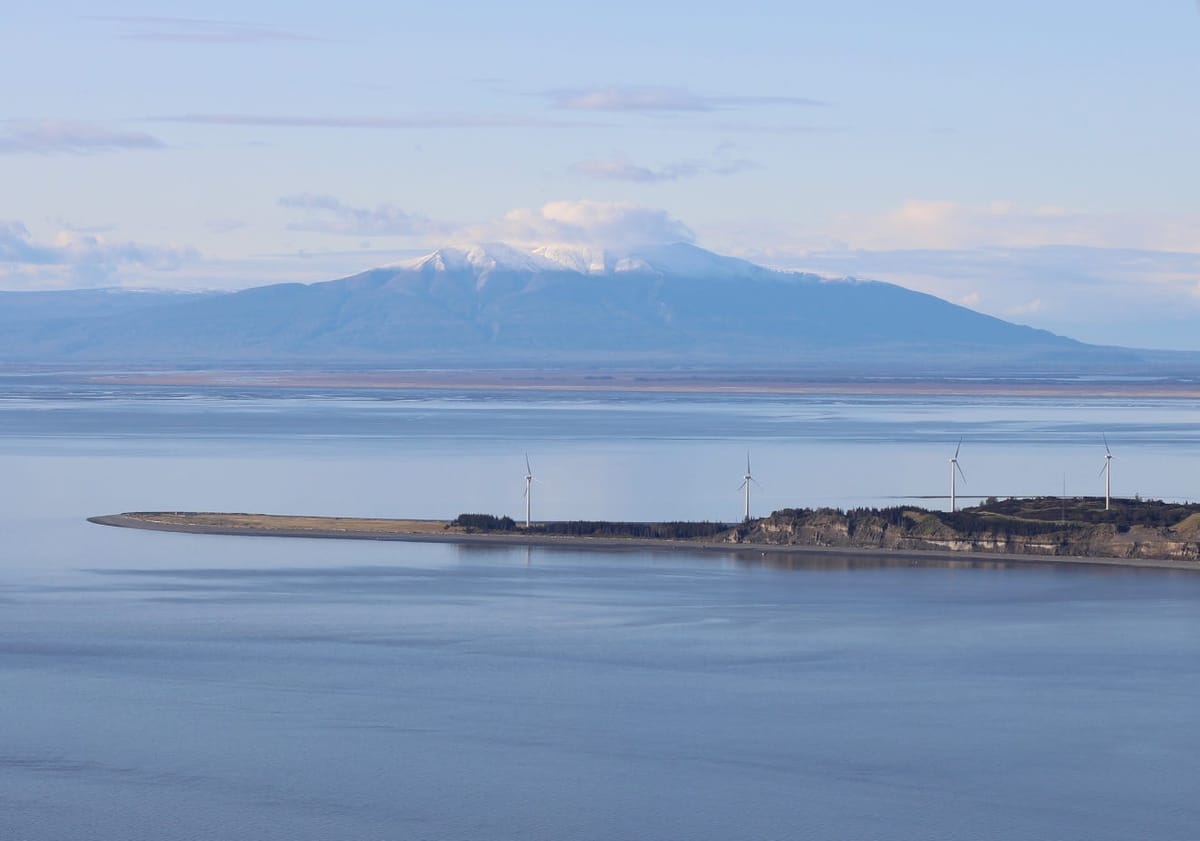Alaska utility regulators work shorthanded as policymakers consider tighter qualifications
Alaska’s five-member public utility commission has a vacancy with no announced timeline for filling it. Meanwhile, some policymakers and advocates want to tighten commissioner qualifications.

This edition of Northern Journal is sponsored by The Boardroom, a shared workspace in Anchorage. The Boardroom’s array of comfy and light-filled workspaces are a great change of pace from my home office; did you know there’s also a shared ski pass for Alyeska Resort that you can borrow if you’re a member? Check out options here.
Northern Journal is a reader-supported publication. To receive new posts and support my work, consider becoming a free or paid subscriber.
The agency that regulates Alaska’s utilities is operating shorthanded, with the retirement of one of its five commissioners and one-third of its staff positions unfilled.
Jan Wilson, the sole attorney out of the five members of the Regulatory Commission of Alaska, or RCA, left the job when her six-year term expired March 1. Republican Gov. Mike Dunleavy has not named Wilson’s replacement, and a spokesman declined to say when the governor would pick one.
“It's just, probably, one of those things that’s going to take some time. And we're getting the job done,” said Bob Doyle, the commission’s current chairman.
The regulatory commission oversees Alaska gas, electric, trash and certain pipeline utilities, applying highly technical but — for consumers and the utilities themselves — consequential laws and regulations.
The commission’s duties include investigating utility mismanagement, as well as determining whether the rates they charge customers are “just and reasonable.”
Commissioners are currently weighing a request by Anchorage’s electric utility, Chugach Electric Association, to raise prices by 6%. Counterproposals by advocates and businesses ask the commissioners to allow only a smaller hike, or even to redesign customer charges to incentivize conservation.
The full-time commissioners are paid six-figure salaries to make those decisions, with help from the agency’s staff analysts, and state law requires them to bring subject matter expertise to the job.
Doyle, a former schools superintendent in the Matanuska-Susitna Borough, said the commission has asked Dunleavy to appoint an attorney to replace Wilson.
But he acknowledged that finding one with the relevant expertise can be difficult given the position’s $116,000 base salary — which he said is a similar problem for the commission’s staff jobs.
“The utilities are paying some really good salaries out there, and it's tough to recruit those folks,” he said. “If you can get the word out and we can get more people that meet the qualifications that we want to have, great — I think that’s wonderful.”
Four people have applied for the open position on the commission, according to Grant Robinson, a spokesman for Dunleavy. Just one, Ryan Fitzpatrick, a commercial analyst at the Alaska Department of Natural Resources, is an attorney, according to the Alaska Bar Association’s legal directory.
Other applicants include Tyler Andrews, the city of Anchorage’s human resources director and a former executive at Chugach Electric Association; Burton Bomhoff, an engineer and land surveyor and a former Iditarod musher; and Wayne Morgan, a tribal leader in the Kuskokwim River hub town of Aniak, where customers of the local electric utility faced a near-tripling of prices last year.
At the time, Aniak residents blasted the RCA for approving the utility’s rate hike, and for not providing a public notice of an increase that put some monthly household electric bills above $1,000.
In response, the Alaska Federation of Natives passed a formal resolution calling on the state Legislature to investigate whether RCA commissioners were carrying out their legal duties, and to add a requirement in law that one of the five commissioner seats be set aside for a member of a Native tribe.
The resolution also repeated a charge previously made by utility watchdogs — that several current RCA commissioners lack the legal qualifications to hold their seats.
State law requires RCA commissioners to be an attorney, or to have a college major in engineering, finance, economics, accounting, business administration or public administration. But five years of "actual experience" in any of those fields “is equivalent to a degree,” according to the law.
Doyle, whose credentials were questioned during his confirmation process, said he’d served for 12 years on the board of the Matanuska-Susitna region’s electric utility. And he added that all of the commission’s members have to be confirmed by the Legislature, which he described as “not just a rubber stamp,” because appointees have to go through confirmation hearings in committees.
Earlier this month, Anchorage Republican Sen. Cathy Giessel proposed a bill that would tighten the qualification criteria for commissioners. If passed, it would require both the existing academic qualifications and five years of practical experience, rather than just one or the other.
But some advocates who have pushed for tighter commissioner qualifications are opposing Giessel’s legislation, Senate Bill 257.
That’s because the qualification change is only a small piece of the senator’s proposal. Most of her bill is aimed at reorganizing the planning process for Alaska’s electrical grid, and critics say it would undermine an existing agency that’s already charged with doing the work.
I make Northern Journal’s stories available, for free, to news outlets — and Alaskans — across the state. I only earn money when readers pay for a voluntary membership. If you find this information useful, please consider joining. If you’ve already signed up, thanks so much for your support.



